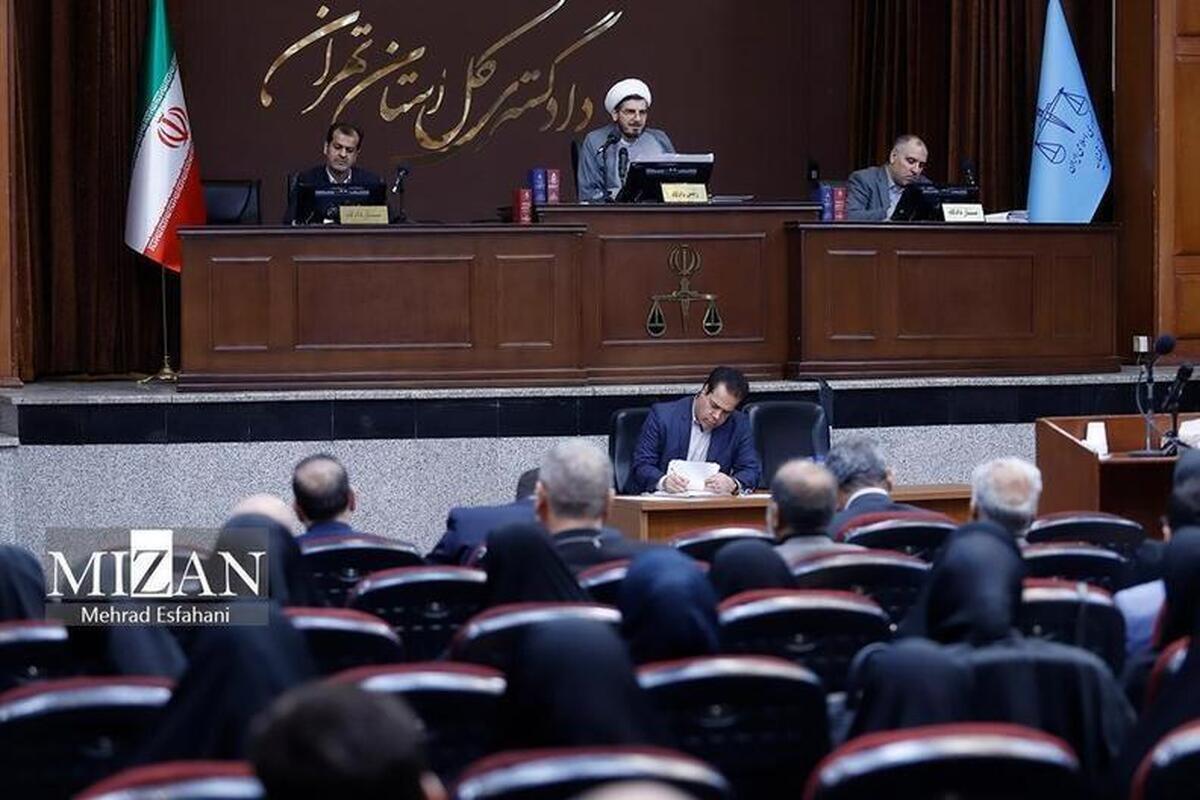How the Revolutionary Guards were kidnapped, tortured and assassinated by the Monafeghin Terrorist Group

This meeting was held publicly at the Imam Khomeini Judicial Complex, chaired by Judge Hojatoleslam Wal Muslimin Amir Reza Dehghani and court advisors Morteza Turak and Amin Nasseri, in the presence of a minister representing the prosecutor, the families of the martyrs and their lawyers, as well as the defendants' lawyers.
At the beginning of the session, Judge Dehghani asked the plaintiffs' lawyer to take the stand and make his statements.
The plaintiff's attorney, Kazemi, stated: "We discussed a subject known as "engineering operations" in the most recent session. Following the actions in February 1982, numerous team houses and senior members of the organization were located and taken into custody. The organization thinks of a way to continue this process because it feels threatened. The organization's members are pursuing engineering operations. Engineering operations entails carrying out intelligence work in order to comprehend the rationale behind the identification of organization members; therefore, they shift their strategy from killing people to obtaining information. "
He went on to say: "They initially began gathering information from the populace at the local level, but when they realized they were not getting any results, they decided to abduct people they believed to be associated with the Islamic Republic and torture them in order to get information about where they were hit. It was thought that this problem was an engineering operation. "
The attorney representing the complainant continued: "In this meeting, we will discuss the various aspects of the Monafeghin's actions in kidnapping, torturing, and assassinating two members of the Islamic Revolutionary Guards Committee, Taleb Taheri and Mohsen Mirjalili, in an operation known as the Engineering Operation."
According to Kazemi, the organization's key players took steps to guarantee that the team houses were prepared for torture and to supply the necessary instruments and supplies. They would locate particular homes and outfit them to torture people; for instance, they would set up a home so that no sound could come out of it.
Regarding this, the attorney for the complaint stated: By using the torture line, the members of the organization tried to abduct Mr. Abbas Effat-Roush, a shoemaker; Khosrow Riahi, a teacher; and three members of the Revolutionary Guards, Taleb Taheri, Mohsen Mirjalili, and Shahrokh Tahmasbi, on the grounds that they appeared to be religious and were likely attempting to locate the organization's team houses.
He continued: After torturing them in the worst way, they would finally martyr them and finally bury their holy body in an unknown place. On August 6, 1982, the two great martyrs Taleb Taheri and Mohsen Mirjalili, members of the Islamic Revolutionary Committee, were standing on Karun Street near a team house belonging to members of the organization. The team house security force became suspicious of them and, after coordinating with the headquarters, searched them on the street as committee agents, then forced them into a car and transferred them to the team house where they were tortured.
The plaintiff's attorney, Kazemi, stated: Based on the statements of the suspects detained in this case, Taleb Taheri and Mohsen Mirjalili were brutally tortured by members of the organization from the time they arrived, including having their bodies burned with irons and boiling water, having their faces and mouths severely beaten, and having their teeth extracted. After their torture failed, they were shot and given cyanide injections to end their lives. After that, their bodies are covered in blankets, transported to Nizamabad, and given to Khosrow Zandi, another organization member who works in the engineering department and is accused. Additionally, they move the bodies to a location in Bagh-e-Fayz that they had previously prepared.